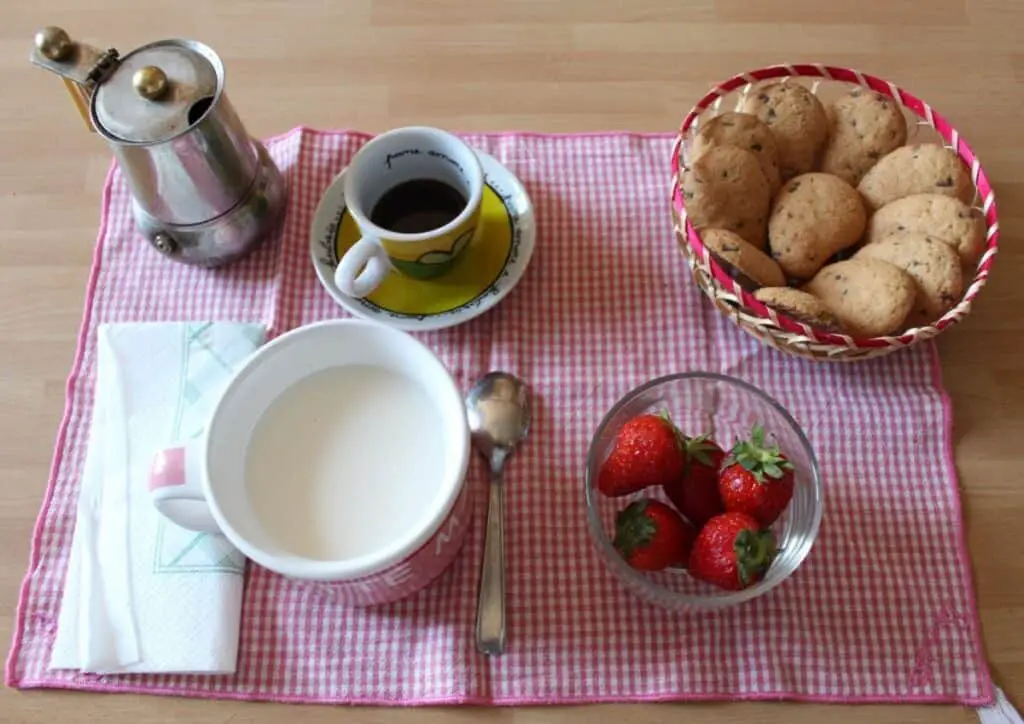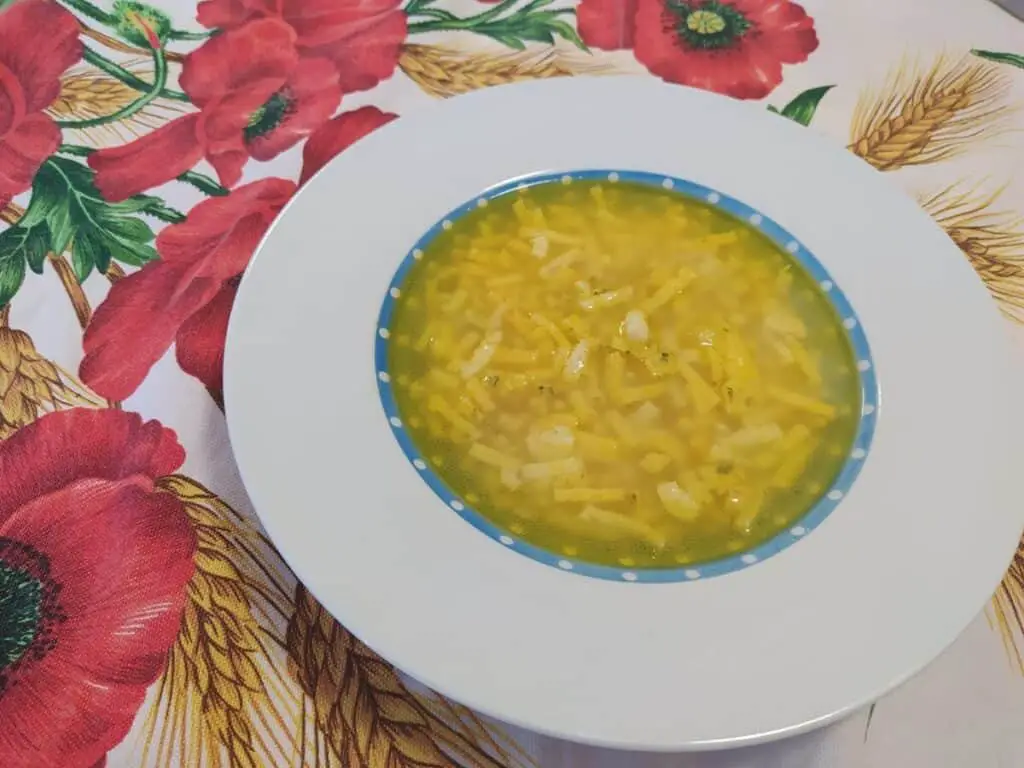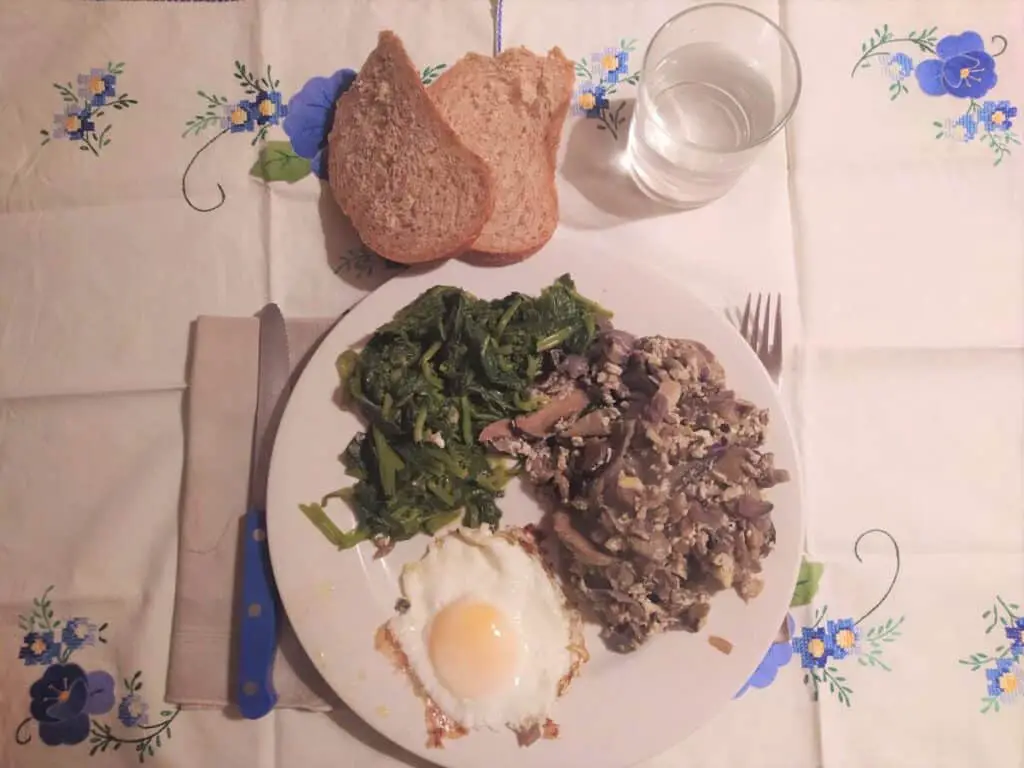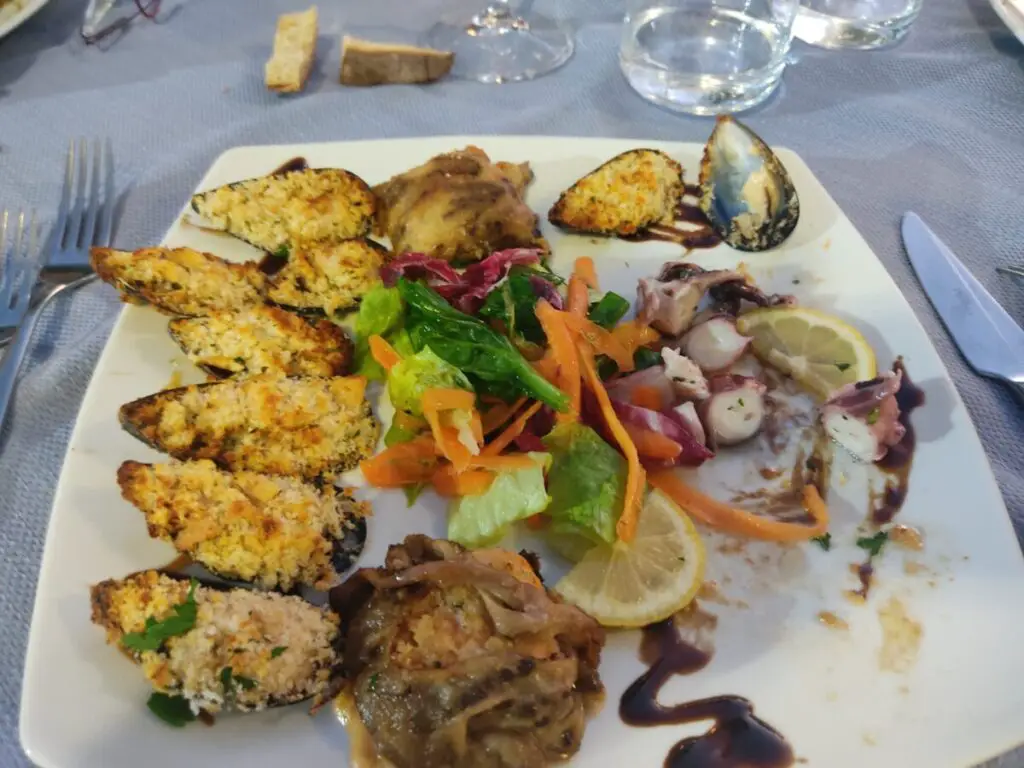In one of your trips to Italy, you might have wondered why tap water isn’t commonly served in restaurants and bars, or you might have struggled to get tap water served to you.
This might have left you frustrated, especially if you were hoping to save money on water throughout your trip.
This article provides a complete guide to customs around ordering tap water in Italy. I explain why restaurants and bars don’t commonly serve tap water and provide some guidance on what you can expect to spend on water during your trip.
Keep reading to find out more
Table of contents
- Can you ask for tap water in Italy?
- Tap water safety in Italy
- Why do Italians prefer bottled water?
- Can you order tap water at an Italian bar?
- Do restaurants in Italy ever serve tap water?
- How to order tap water in Italy
- The cost of bottled water in Italy
Can you ask for tap water in Italy?
Asking for tap water in Italy, whether you are in a bar or at a restaurant, is not customary. Food establishments in Italy serve bottled water by default although tap water is safe to drink. In the majority of cases, you will be served tap water if you specifically request it, although this request may be perceived as strange.
Common reasons why a food establishment in Italy may not want to serve tap water include:
- Tap water doesn’t taste nice in the specific Italian region you’re in
The taste of the local tap water in Italy depends on the state of maintenance of the local aqueduct, or water supply, and so it can vary from one region to another.
The structure of the water supply in certain regions, such as Sicily, for example, means that, after leaving the source, the water sits in large tanks for some time before getting to the tap. This can negatively affect its taste.
It is possible that, if the water from a certain area in Italy is known by the locals to not taste nice, restaurants or bars might not want to serve it, as they are worried that the water taste might affect their reputation.
- The restaurant/ bar does not want any responsibility in case the tap water might make you ill
Tap water in Italy is safe to drink, and should not make you ill. However, it is possible that the restaurant or bar you are at doesn’t want to take any risks that you might be ill after drinking tap water.
To avoid being held responsible in case the tap water makes anybody ill, Italian restaurants and bars often prefer to serve water in a sealed bottle which the customers can open themselves.
Tap water safety in Italy
Tap water in Italy is safe to drink. Public aqueducts, by law, must ensure that there is an appropriate filtration system to guarantee that the water is potable, and this is checked through regular safety chemical tests. Italian tap water, however, may taste better in some regions than others, depending on the route that the aqueducts take, the water source and the maintenance of the filtration systems.
If water from an Italian tap is ever unsafe to drink, the tap must be labelled as “acqua non potabile” (not drinking water).
Italian tap water may taste better in some regions than others. For example, tap water in Rome can be drunk unfiltered and tastes very good in most areas, although there are certain areas within Rome itself where tap water does not taste so great.
Water getting into Rome uses the same sources, and sometimes the same routes, around the city that were used by the ancient Roman aqueducts, and this is the reason why tap water is particularly good in Rome.
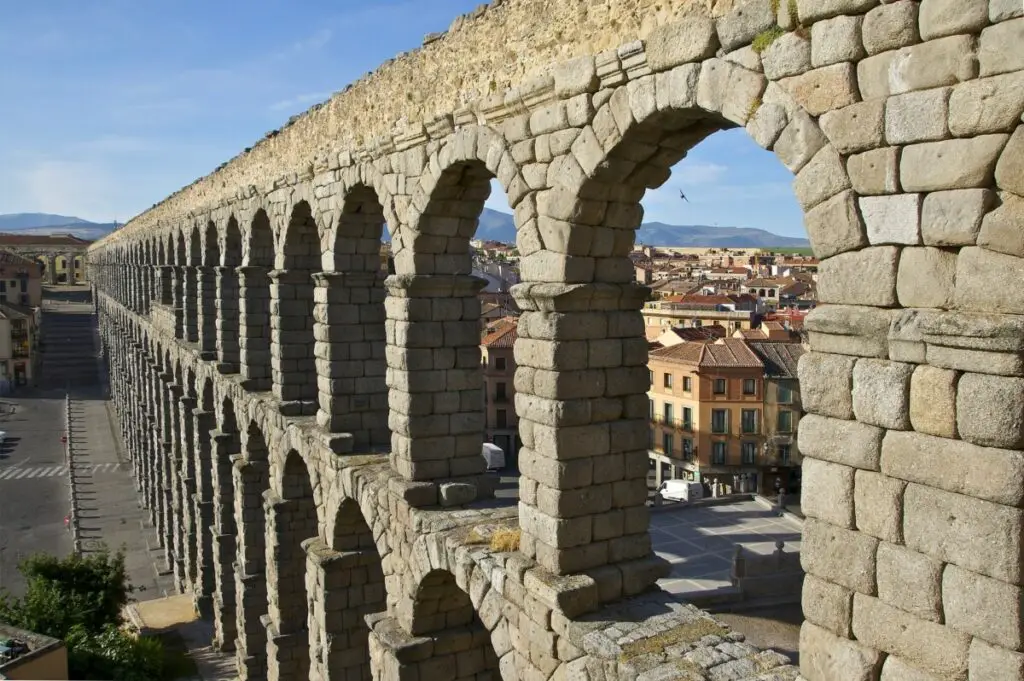
Many Italian cities and towns also have several fountains in the streets that water is constantly flowing from. Many people refill their water bottles from these fountains when they are out and about.
The water from Italian public fountains has a cool temperature, is safe to drink, and often tastes very good, since it is always running and never stagnating. The water that goes into the drain from these fountains is then cleaned and filtered again and re-used.
Why do Italians prefer bottled water?
Many Italians prefer bottled water, or choose to filter their tap water at home, because they prefer the taste, compared to water from the tap.
Some Italians choose bottled or filtered water as a measure of caution, because they don’t completely trust the quality of their tap water as drinking water, although the safety of the local aqueducts and and the efficiency of the water purifying systems is something that the Italian law guarantees.
The preference of Italians for bottled water is determined mainly by taste and psychological factors, although in some areas with good aqueducts, such as Rome, running water might even be better than bottled water, because it hasn’t been stored in plastic for a long time.
As a general rule, Italians are very health conscious, and so choice of bottled water is important to some people who may prefer water with certain properties, such as a high mineral content.
Another reason for choice of bottled water in Italy is that people may have specific requirements, such as water low in calcium for use, for example, in a coffee machine.
Italian supermarkets provide a wide choice of bottled mineral water, each brand with its own characteristics in terms of mineral content.
Here is one of the slogans of a popular Italian water which is low in sodium:
"Acqua Lete. Ricca di Piacere. Povera di sodio"
…which translates roughly to “Lete water. Rich in taste, poor in sodium”.
Below are names of other popular Italian water brands:
- Rocchetta
- San Benedetto
- Sant’ Anna
- San Bernardo
- Ferrarelle (naturally sparkling)
- Levissima
- Acqua Panna
- Uliveto
- S. Pellegrino
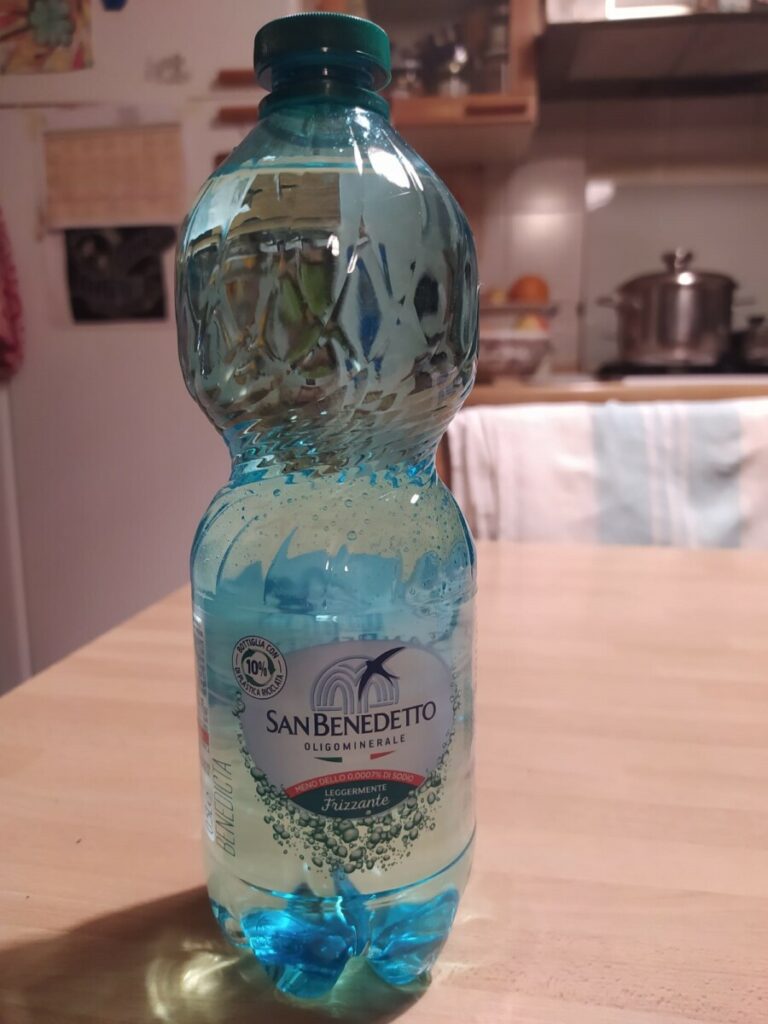
Can you order tap water at an Italian bar?
Asking for tap water in an Italian bar is also uncommon, but not as uncommon as in a restaurant. If you are in an area where tap water is notoriously good, such as Rome, most bars will happily serve you a glass of tap water.
If you are in an area where tap water doesn’t taste very nice, the waiter may look surprised, warn you that it won’t taste very nice, or even avoid serving the water.
For a fun insight into water prices in Italian bars, watch this video, where an Italian reporter interviews various waiters/ bar owners in Milan and challenges them on the cost of a bottle of water bought from the bar.
His advice is to avoid purchasing water from a bar altogether, if you can. If this can’t be avoided, he advises that it’s cheaper to purchase a bottle of water, rather than a single glass, or to ask for tap water specifically, as this is free.
If you order tap water from a bar, since this is free of charge, it might be a good idea, as a polite gesture, to purchase or consume something else.
Do restaurants in Italy ever serve tap water?
Some restaurants in Italy have their own filtration system and serve filtered tap water in a carafe. This, however, tends to happen mostly in the more informal restaurants.
The waiters or owners, if they choose to serve tap water, will typically explain to the customer where the water comes from and how it has been filtered.
How to order tap water in Italy
If you just order water when eating out in Italy, you will get bottled water (“acqua in bottiglia”), so if you would like tap water, you need to specify this. The Italian for “tap water” is “acqua del rubinetto”.
Here are some useful phrases for ordering tap water in Italy:
- Posso avere un bicchiere d’ acqua del rubinetto per favore?
Can I have a glass of water from the tap please?
- Posso avere una caraffa d’ acqua del rubinetto per favore?
Can I have a carafe of water from the tap please?
- Vorrei acqua del rubinetto per favore
I would like tap water please
- Per me, acqua del rubinetto per favore
For me, tap water please
The cost of bottled water in Italy
The table below shows roughly what you can expect to pay for bottled water at bars, restaurants and supermarkets in Italy.
| Water type | Place of purchase | Price range |
|---|---|---|
| One 50-cl bottle of water | Bar/Restaurant | 1.5 Euros |
| One 1-liter bottle of water | Bar/ Restaurant | 2 – 2.5 Euros |
| One 50-cl bottle of water | Supermarket | 0.28 Euros |
| 1-liter bottle of water | Supermarket | 1-2.5 Euros |
| 6-bottle pack (1.5 liter each) | Supermarket | 2-5.50 Euros |
| 6-bottle pack (0.5 cl each) | Supermarket | 0.14-2.70 Euros |
If you are interested in checking out Italian Supermarket prices, check out this Italian supermarket website, which allows you to browse items and shop online.


